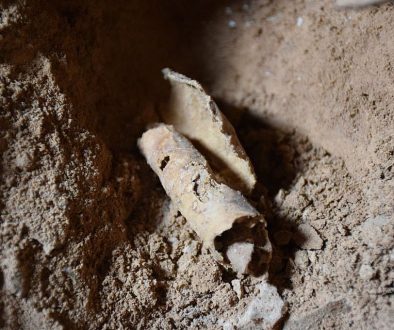IN SEARCH OF NOAH’S ARK: Beware of ‘weak’ Ark claims
ASI Note: Noah’s ark and the Ark of the Covenant are making the news lately. This is part of a series in Baptist Press about a trip made in search of Noah’s Ark. The article does NOT necessarily reflect the viewpoints of Anchor Stone International, it’s reproduced for information purposes only.
FORT WORTH, Texas (BP)–While Christians who take the Bible at face value don’t doubt the possibility of discovering the remains of Noah’s Ark, caution ought to be the order of the day, a Southern Baptist seminary professor said.
“A large portion of the interest surrounding the issue seems to be centered in the desire to prove the miraculous,” said Timothy Pierce, professor of Old Testament at Southwestern Baptist Theological Seminary in Fort Worth, Texas. “While many expeditions have been undertaken by respected scientists and archaeologists, many more have been taken by believers who have something to prove — and who have offered little more than their word that they found something.
“It’s easy for those of us who believe in the historicity of the flood and other miracle accounts in the Bible to grab on to any piece of ‘evidence’ that is presented in order to demonstrate that our belief is warranted,” he said. “We should be careful what claims we wed our beliefs to, lest when those claims are proven to be false, people conclude our beliefs are false as well.”
George Hagiopian’s 1905 assertion that he actually walked on the Ark’s deck is only one example of overzealous claims that give skeptics ammunition against Christian faith in general and belief that the Ark could be discovered in particular, Pierce said.
“For example, the somewhat questionable methods and seemingly exaggerated claims of Daniel McGivern and Ahmet Ali Arslan in 2004 gave rise to an article in National Geographic (Sept. 20, 2004) that berated the idea that the Ark might be found on the mountain,” he said. “Such overzealous claims and assessments cause many individuals to be less predisposed to believe in the likelihood of the Ark being on the mountain because of the ‘too good to be true’ claims that often are associated with reports of its sightings.”
Even the most persuasive evidence would not convince people determined to disbelieve, Pierce added.
“One has to wonder how much we might actually achieve by finding the Ark up on the mountain,” Pierce said. “While it would certainly be a boost to our psyche and would be another ‘bullet’ in our apologetic’s arsenal, I think sometimes we have the impression that such a discovery will prove to the world that the Bible is true.
“In fact, if they came down the mountain with pictures of a hull, carrying wood that dated to 3500 BC, native to Mesopotamia, with a tar-like substance spread over it, within 24 hours there would be an explanation — completely divorced from the Noahic story — that would satisfy the secular world. Skeptics will find an alternate explanation for the material.”
None of that means the search for the Ark should be abandoned, however.
“I’m not saying the trip shouldn’t be taken,” Pierce said. “If it brings one person to faith in Christ who formerly disbelieved, it would be worth all the money spent on the endeavor. But it has to be done with integrity, because the ends never justify the means — and the result needs to be clear evidence, not simply someone’s word.
“In short, my concern is that the evidence has become more authoritative — and in many ways more important — than the biblical account. The validity of the story of the flood does not rest upon what is found on that mountain.”
This article originally appeared at https://www.bpnews.net/bpnews.asp?ID=20915





